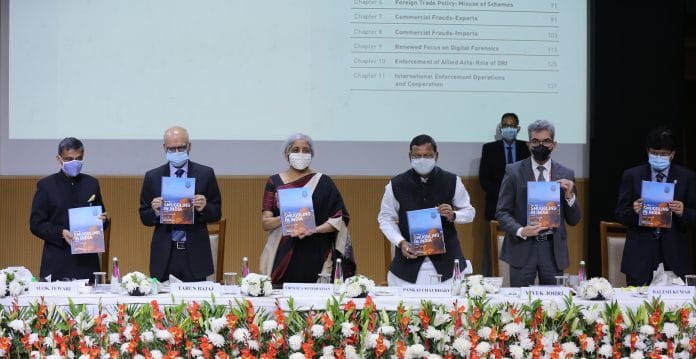New Delhi: The Directorate of Revenue Intelligence (DRI) has flagged a “spate of seizures” of ambergris — a waxy substance found in the digestive systems of whales — in the past year, a new report has revealed. Ambergris is used in luxury perfumery, and helps in making smells last longer.
In the report released Monday, the DRI has stated that between 2021 and 2022 law enforcement authorities in states and the central government seized a combined 22.50 kilograms (kgs) of ambergris, worth Rs 22.5 crore. While international wildlife and trade conventions consider ambergris a waste product, in India it is protected under Schedule 1 of the Wildlife Protection Act.
Reports of ambergris smuggling have emerged from Chennai, Maharashtra and Uttar Pradesh, among others, in the past year and is driven by “high demand and profit”, according to the DRI.
The DRI also seized 51.42 kgs of dried seahorses, which were being smuggled as garments into Bangladesh, as well as 4,762 Indian star tortoises, 77 exotic birds, and 27.85 kgs of elephant ivory worth Rs 716 crores, during the same period.
The emergence of the dark web, use of cryptocurrency, and the anonymity offered by the internet “has led to an increase in this illegal trade”, said the report.
It added: “The porous international borders with Bangladesh, Nepal, Myanmar, China and other Southeast Asian countries, and a growing aviation market makes the fight against the illegal wildlife trade increasingly difficult in India.”
India is a hotspot for illegal wildlife trade, because it houses nearly 6.5 per cent of all the world’s known wildlife species, according to the UN Office on Drugs and Crime. Approximately, 7.6 per cent of the world’s mammals and 12.6 per cent of the world’s birds are found in India.
Other DRI seizures
Red sandalwood, another popular item for smuggling, is “primarily smuggled through Nhava Sheva (Navi Mumbai), Mundra (Gujarat) and Chennai ports,” and concealed containers are “are shipped first to transit countries like Dubai, Malaysia and South Korea and from there to the actual destination to avoid detection,” stated the government report.
Between 2021-2022, the DRI seized 161 metric tonnes of red sandalwood worth Rs 97 crore.
The DRI also noted five instances of biohazardous waste and e-waste being smuggled into India, the imports of which are strictly prohibited by India’s pollution laws.
According to the report, “Targeted risk intervention strategies combined with traditional methods like the use of sniffer dogs at ports and airports to detect smuggling of wildlife articles and endangered species of wildlife are helpful,” in the detection of illegal wildlife trade.
(Edited by Poulomi Banerjee)
Also read: 70 years after they went extinct, cheetahs return to India in world’s largest conservation trial






